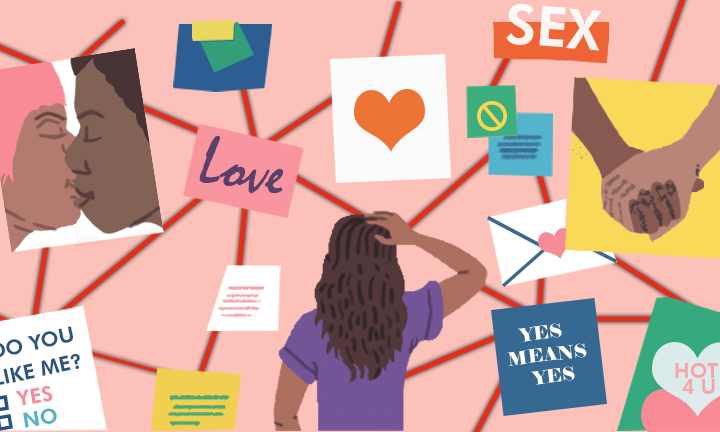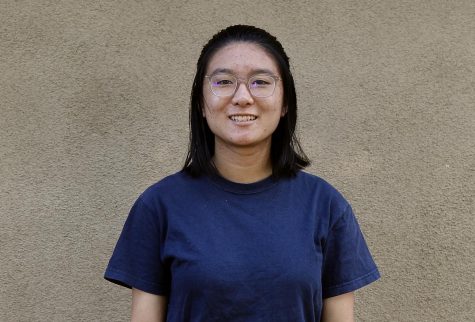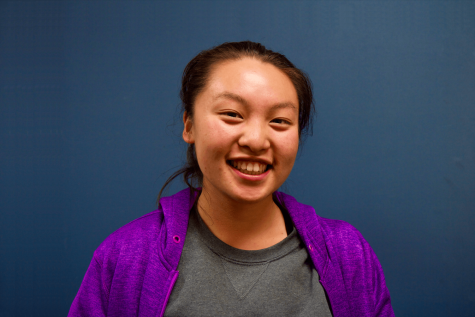Self discovery and sex education: Bringing the truths out from under the sheets into the light
May 3, 2019
For her seventh grade biology classes in rural Mississippi, science teacher Bobbie R. Byrd showed her students a video of a life birth. They saw blood from the birth splattered on the doctor and the floor. In the small town where Byrd taught, teen pregnancy rates were high. Before the birth videos, when her students heard the word “sex,” they would snicker and giggle. After Byrd’s class, they didn’t anymore.
“It wasn’t funny anymore. It was reality. It was serious,” Byrd said. “I couldn’t bear to think about losing one of my students in childbirth. I had to educate them. I had to do what I could do.”
Several years later, after Byrd retired from teaching, she ran into one of her former students who told Byrd of her plans to attend college and become an engineer. The student told her that it was because of the videos Byrd showed her that she decided to wait until she was ready to become pregnant. For Byrd, her interaction with her former student affirmed the importance of awareness and education.
“Knowledge is power,” Byrd said. “Sometimes, one day is all it takes to impact the trajectory of someone’s life.”
Sex education continues to have the potential to impact students’ lives long after the lessons take place in the classroom.
“We all have a sexuality,” said Heidi Winig, a Bay Area sexual health educator. “Sexuality does not equal having sex. Sexuality includes the way we identify ourselves, think about our body and how we feel about our friendships and relationships.”
At Lynbrook, students receive sex education in their ninth grade biology classes. Since the passage of the California Healthy Youth Act in 2016, public schools have been required to cover sexual harassment, sexual assault, adolescent relationship abuse, intimate partner violence and sex trafficking, in addition to contraception and STI prevention.
For some students, sex education serves as a platform to be more confident in their developing identities and to provide students trusted resources for someone they can consult.
“A lot of people are still scared [of coming out] because there is a lot of stigma,” said senior Estella Lin, vice president of Lynbrook’s Gender and Sexuality Alliance (GSA). “They face a lot of questions such as: What will my peers say? What if my parents find out? It does help a lot that you know that if you talk to your teacher about it, they’re not going to react negatively.”
Some students expressed that their sex education experience at school is heavily affected by their teachers, leading to discrepancies in learning among students.
“If the teacher is more open, they tend to talk more about their experiences and show their students how they combat certain issues as adults and role models,” freshman Amy Zhou said. “For teachers who are not as comfortable talking about it, students end up not having the same experience.”
Moving forward, students hope to see classrooms become more open spaces for students to discuss sexuality and their own bodies. Some students would like to see non-heterosexual sex covered in school as well.
“You cannot overlook the LGBT community just because that education hasn’t been given before,” junior Akshata Chonnad said. “You need to recognize that group of students in your school and they should be given a fair education just like everyone else.”
Most Lynbrook classrooms have a small sign that says “No Homophobia,” with a red circle crossing out the words “that’s so gay.” Yet some Lynbrook students say they still hear their classmates use the phrase, and want it addressed.
“It diminishes the LGBTQIA+ community as a punchline,” senior Yiu-On Li said. “It’s unjust. We should remind ourselves of the impact words have on others.”
Li’s sentiment suggests that sex education does not always have to be about biology and the action of sex itself, but can also be about how people communicate with each other and make sound choices, creating a culture of openness and understanding.
“I’d like to see sex-ed be considered part of a more general social emotional curriculum, on how to be a healthy, happy and fulfilled person in the world,” Winig said. “It’s about students having agency of their own lives, having good decision-making skills, having information and knowing where to get information.”
For science department lead Jason Lee, teaching physiology allows him to revisit the topic of sex education with his students, who are mostly upperclassmen. In addition to teaching about anatomy and hormones, Lee covers aspects of sexuality such as consent and healthy relationships.
“I want to get across the message, ‘don’t violate other people.’ That’s bottom line for me,” Lee said. “That means the things you say, the things you do, the way you come across with others needs to be respectful. [Sex education] is really an opportunity to say, ‘Hey, we’re 36 very unique, different people. But can we get along in this classroom? Can we do that in the context of gender identity and sexual identity and all those things?’”
The 2019 Revision of the Health Education Framework is scheduled for adoption for California public schools in May 2019. Through kindergarten to eighth grade, the curriculum will cover topics ranging from gender stereotypes, healthy relationships and mental and emotional health to disease prevention, high-risk situations and sexual exploitation. Students will delve deeper into these topics as they progress through high school with a greater emphasis on analyzing personal behaviors in relation to health, well-being and personal goals. Sex education does not stop in high school, however, as teens continue learning more about themselves.
“Anyone going through crisis, whether it’s peers pressuring them, or confusions about sexual identity, should know that it’s okay. It’s okay to feel a certain way,” senior Erika Murase said. “Your feelings are your own and you are in control of them. It’s completely up to you. There are so many people in this world going through the same thing.”




































































Okuse Marvellous • Apr 7, 2020 at 5:10 am
I have been on this particular movie if sex education for long right from the beginning of season one to two. Not quite long the season 2 was released after hearing so many things about the movie review that the movie was banned. I just want to know if there will be releasing season 3 this year or next year. And I have also read through this article and I am so grateful for the update that you have posted right here, thanks.